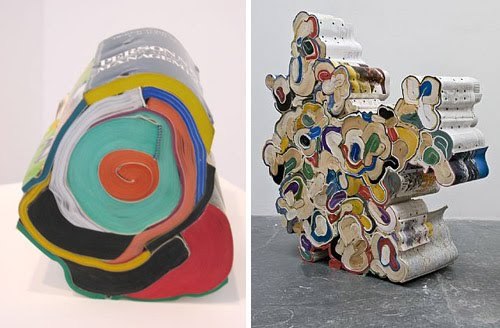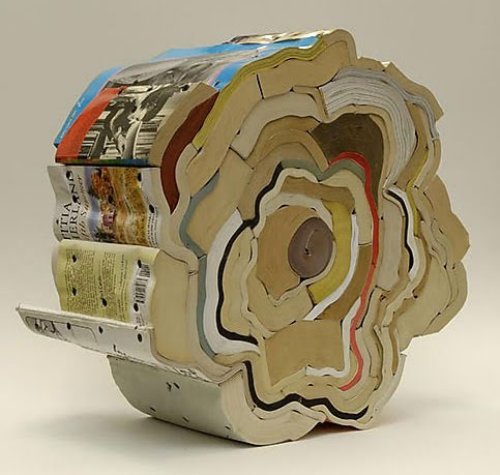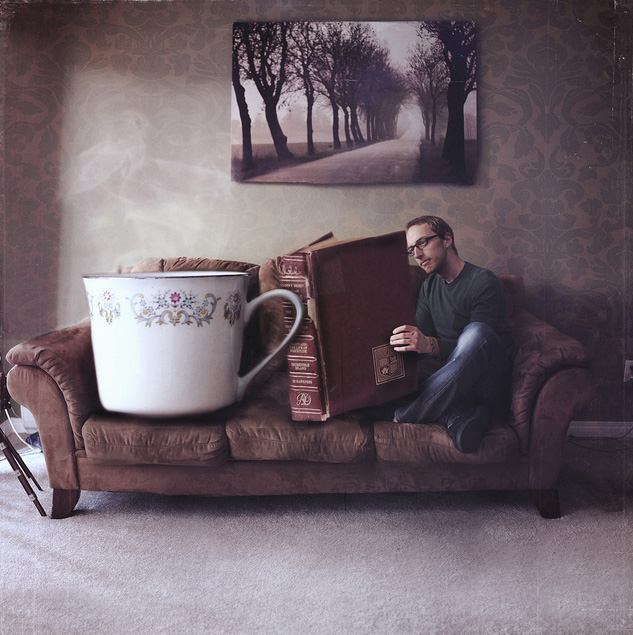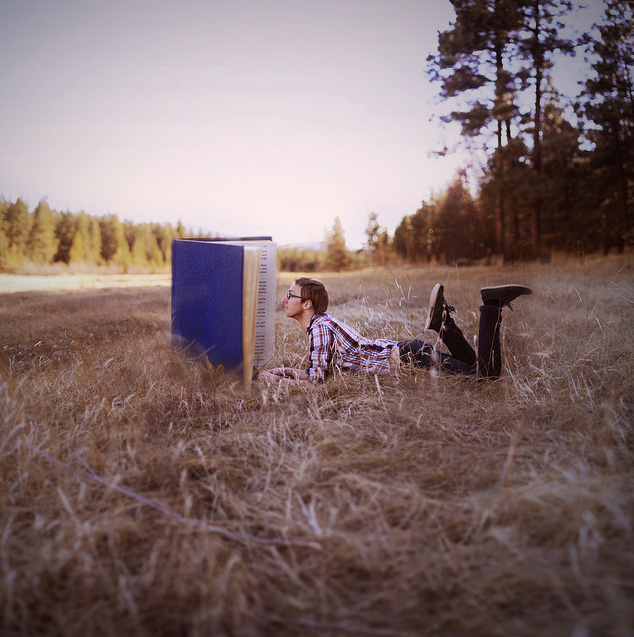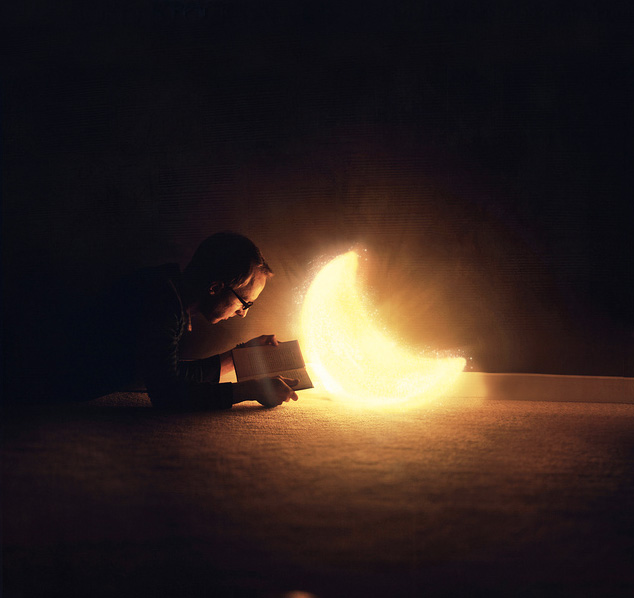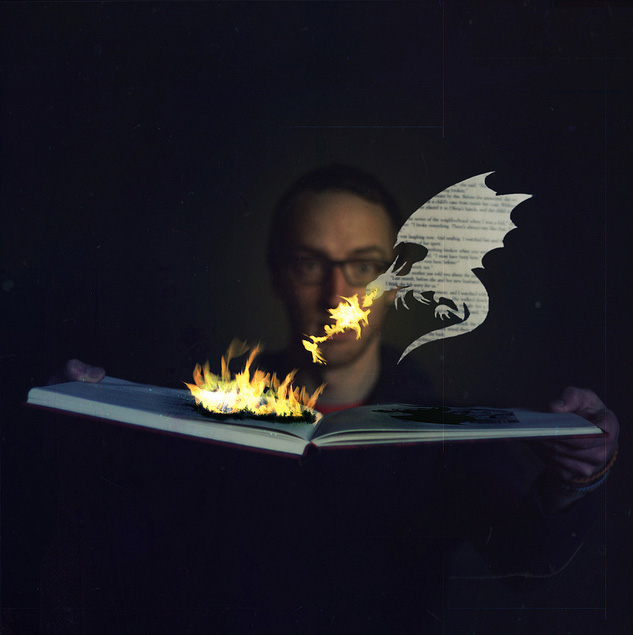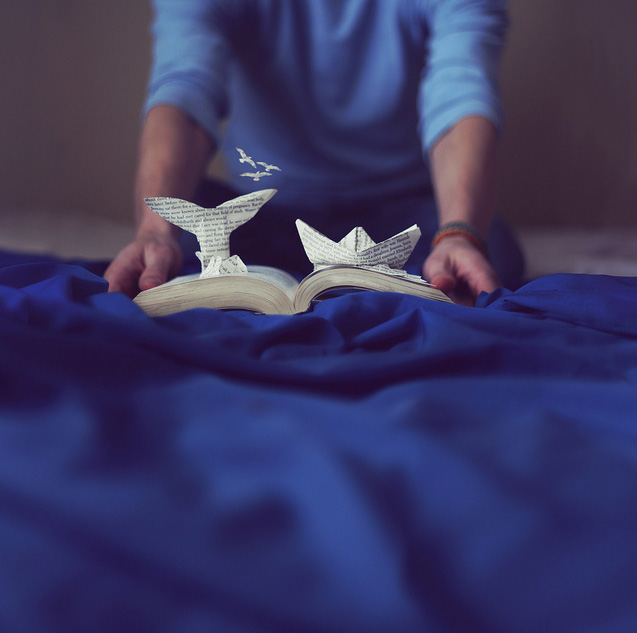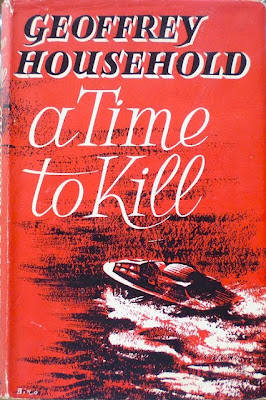 Full story over at weldonowen
Full story over at weldonowen
Tracking innovation, development and experimentation in information studies and library science and spotting new technologies, trends, fun stuff and much more.
Friday, May 18, 2012
Raising money to free classic volume on Africa's oral literature
A campaign on Unglue.it is seeking to raise $7,500 to pay for a Creative Commons Attribution-only licensed edition of Oral Literature in Africa, an out-of-print classic on the subject that is widely sought by African libraries. Once the money is raised, they will produce the new edition and make it widely available.
First published in 1970 by Oxford University Press, this classic study has been hailed as 'the single most authoritative work on oral literature’. It traces the history of story-telling in Africa, and brings to life the diverse forms of creativity across the African continent. Author Ruth Finnegan is thought to have ‘almost single-handedly created the field of ethnography of language’ with this book, and it continues to be a go-to text for anyone studying African culture.
However, despite its enormous scope and popularity, Finnegan’s book is now out of print. It is particularly hard to find in Africa, where its original retail price was beyond the budget of most university libraries. The non-profit organization Open Book Publishers is endeavoring to make this definitive book freely available to African students and scholars — and indeed to any interested readers around the world. The Unglued Ebook will be particularly friendly to people in places with slow Internet connections: once a copy is downloaded, the book can be read offline.
This edition, developed in conjunction with Cambridge University’s World Oral Literature Project, will include a new introduction and extra digital material. When Finnegan’s book was first published forty years ago, the technology did not exist to include audio clips. Part of this Unglue campaign will involve the creation of a free online repository of Finnegan’s audio recordings of African story-telling, carefully collected during her fieldwork in the late 1960s. These clips, together with original photographs taken during her research, will become available for the first time to researchers everywhere — an invaluable resource to scholars of African literature and culture.
(Via Boing Boing.)
Wednesday, May 16, 2012
Monday, May 14, 2012
Friday, May 04, 2012
Thursday, May 03, 2012
British WWII propaganda movies to view and download
The British Council has posted a fabulous trove of CC-licensed, downloadable 'cultural propaganda' videos commissioned during WWII to 'refute the idea that ours was a country stuck in the past.'
During the 1940s, the British Council was an enthusiastic commissioner of documentary films. Over 120 films were produced as 'cultural propaganda' to counteract anything the Nazis might throw out and to refute the idea that ours was a country stuck in the past. These films were designed to showcase Britain to the rest of the world, at a time when Britain itself was under attack.
Seen by millions of people in over 100 countries worldwide from the 1940's to 1960's, they present a historic snapshot of Britain, portraying its industry, its landscapes, and its people. The Collection is fantastically varied, covering anything from how a bicycle is made, to how the British spend their Saturdays. They provide us with a unique insight - not necessarily into how Britain actually was, but more into how Britain once wanted to be perceived by the rest of the world.
Alongside basic credits and production information, you can find some fascinating pieces of trivia, photos, and screen grabs, as well as the original synopses that the films were distributed with. Some of the films give you the option to go even deeper, to learn a little more about how the films was made. And, perhaps most importantly, you can not only watch the films online but download them too.
British Council Film: British Council Film Collection
(Via Boing Boing.)
Tuesday, April 24, 2012
Founded 212 years ago today - The Library of Congress
Monday, April 23, 2012
University of Florida Eliminates Computer Science Department
Full article at Forbes.
A reader has amplified this a bit. Not as bad as the original article implied, but not good either.
Contrary to some reports, Florida is not eliminating its computer science department. Instead, it is proposing a radical restructuring that will kill the research arm of one department, scattering its faculty and leaving any left behind with an expanded teaching burden and fewer teaching assistants. Whether it would be better to simply kill it isn't clear.The rest is at ars technica.
Sunday, April 22, 2012
25 Insane Reasons Why Kids Don't Like Certain Colleges
1. Dislike of archways
2. No Chipotle within walking distance
3. "I don't know anyone there."
4. "I know too many people there."
5. Aversion to tour guides' footwear (five-toed multiport sneakers) or headwear (Sherpa cap)
6. Tour guide too smug ("In my spare time I'm a midwife, and since returning from Uganda, I've started an NGO that installs solar panels in orphanages.")
7. Annoying bell tower
8. Too many Harry Potter references during info session
9. Not enough/too many vegan options in dining hall
10. Aversion to architecture: too Georgian, too Gothic, too Taco Bell
11. Too many mentions of how Oceanography course changed tour guide's life
12. Tour guide's resemblance to Justin Bieber
13. Too many homeless people
14. Professors look like homeless people
15. Aversion to upstate NY ("Upstate NY is for camp, not college")
16. Tour guide's repeated mention of a cappella groups and/or squirrel clubs
17. Rain
18. Woodland creatures: deer, raccoons, skunks
19. Aversion to school colors
20. Townies reminiscent of characters in "Deliverance," "Big Love," or "Jersey Shore"
21. Mean parking attendant
22. Long line for the ellipticals at the gym
23. Lame Latin words in school motto
24. Emma Watson transferred out
25. School is parents' first choice
More at The Huffingyon Post.
Thursday, April 19, 2012
The top ten fast growing and most quickly dying industries
1. Photofinishing
2. Newspaper publishing
3. Appliance repair
4. DVD, game, and video rental
5. Money market and other banking
6. Recordable media manufacturing
7. Hardware manufacturing
8. Shoe and footwear manufacturing
9. Costume and team uniform manufacturing
10. Women’s and girls’ apparel manufacturing
The good news:
1. Generic pharmaceuticals
2. Solar panel manufacturing
3. For-profit universities
4. Pilates and yoga studios
5. Self-tanning product manufacturing
6. 3-D printer manufacturing
7. Social network game development
8. Hot sauce production
9. Green and sustainable building construction
10. Online eyeglasses sales
Details on both lists at The New Statesman, here and here.
The Art of Hemingway: The Old Man and the Sea in Four Minutes
Found at booklicious.
Leonardo: Anatomist - by Nature Video
Wednesday, April 18, 2012
Introducing LiLi - A Library Cruiser
Right on the heels of National Bookmobile Day comes the launch of the newest library liaison.
Meet LiLi – Library Live and On Tour - a new initiative by the Fraser Valley Regional Library in British Columbia. Touted as the first of its kind in the world:
Library Live and On Tour will shatter preconceptions about libraries, library services and librarians. Library Live and On Tour will deliver services to people in our communities who do not know about our libraries or have some obstacle to visiting them. Unlike ‘bookmobiles’, Library Live & On Tour will stress service, access to information and awareness rather than being exclusively about library materials.
The centerpiece of LiLi is a transformed 2012 Nissan Cube, completely revamped to include:
an undercarriage glow
the back opens to reveal a mounted 40″ plasma digital display screen
external sound system, with wireless mic
built-in bookshelf with giveaway books
2 laptop computers with 3G connectivity
2 Kobos &; a Sony eReader
an iPad2 &; a Blackberry Playbook
an Xbox Kinect
and, of course, the car horn that plays OOOGA!
At least there is still a bookshelf in it!
Post at Dysart &Jones, Now THAT'S a Mobile Library!
(Via Book Patrol.)
Bookmobile, 1928 (photo)

This bookmobile for the sick was wheeled around Los Angeles hospitals in 1928, a service of the LA public library.
(Via Boing Boing.)
Tuesday, April 17, 2012
One-in-five American Adults Do Not Use the Internet
From the Pew Internet and American Life Project post today titled Digital Differences:
“One-in-five adults do not use the internet. The difference between that group and the majority of Americans who do go online remains strongly correlated with age, education, and household income, which are the strongest positive predictors of internet use.
Certain aspects of the current internet population still strongly resemble the state of internet adoption in 2000, when one of Pew Internet’s first reports found that minorities, adults living in households with lower incomes, and seniors were less likely than others to be online…”
Rotting food as art
The project is intended to be a comment on global food waste. On Pichler's website, each image is paired with a caption containing details about the origination and transportation of each item. Check out the full gallery there. And be sure to pass this along to any friends who might still be eating lunch.
IKEA reinvents the television - and very well.
From IKEA:
IKEA introduces UPPLEVA, a completely new range that integrates smart TV and sound system with furniture. UPPLEVA brings beauty and functionality to the living room, solving the problem of cable clutter and miss-match between TV and furniture.
You will find UPPLEVA in Stockholm, Milan, Paris, Gdansk and Berlin in June 2012. During autumn 2012 UPPLEVA is available in all of the stores in Sweden, Italy, France, Poland, Denmark, Spain, Norway and Portugal , and during spring 2013 in even more countries.
Please come to America soon!
Monday, April 16, 2012
No fiction award by Pulitzer Prize judges in 2012
The three finalists were "Train Dreams" by Denis Johnson, "Swamplandia!" by Karen Russell and "The Pale King" by David Foster Wallace.
In deciding the Pulitzer Prize for fiction, a committee of readers, which changes annually, recommends a small slate of titles to a panel of judges, who choose the winner.
Since its founding in 1918, the Pulitzer Prize for fiction has not been awarded nine other times. The most recent year in which there was no fiction award was 1977.
On occasion, the decision not to award the fiction prize has been marked by controversy. In 1941, the committee's recommendation of "For Whom the Bell Tolls" by Ernest Hemingway was deemed offensive by the president of Colombia, and no award was given.
From The LA Times Blog
Computerized page layout in 1977 (video)
In 1977, Bell Labs built an early touch-screen system to more easily produce advertisements for inclusion in the Yellow Pages. The system was designed to eliminate the need for physical paste-ups, allowing easy creation of graphic advertisements that would go directly from the screen to the Phone Book.
The system represented a huge leap forward for the business directory, which had been published in various forms, by various companies, since 1906. AT&T sought to constantly improve the publishing process — even small efficiency boosts in the Yellow Pages production could make a huge difference in cost, because of the huge quantities involved in both content and printing.
Improvements in desktop publishing software through the last few decades obviated the need for the system seen in this film, and the emergence of the internet and other information-distribution media drove down profits for the Yellow Pages themselves. AT&T announced in April 2012 that it would sell a majority stake in its phone book business to an outside company.
Footage courtesy of AT&T Archives and History Center, Warren, NJ
Friday, April 13, 2012
Library Rules, 1799
Of the library and librarian
1. There shall be a room appropriated to the library, apparatus and curiosities of the University. Shelves shall be put up in it, at the expence of the board. Fire shall be made and kept up in the room once every week for two hours, by order of the librarian, and then be entirely extinguished. And no person but a trustee or member of the faculty shall be admitted into the room of the library, without the presence of the librarian: but either of these shall be admitted whenever they require it.
2. The librarian shall be appointed by the faculty every half year, who shall make a report to them as often on the state of the library. He shall also account to the treasurer of the board for the monies he has received as librarian.
3. Every student on the establishment of the university, may use the books of the library on paying fifty cents into the hands of the librarian for the session in advance. The encyclopedia shall not be taken out of the library by any student not belonging to the senior or junior classes; and no other shall ever consult them, except in the presence of some member of the faculty.
4. The librarian when he delivers a book out of the library to a student shall write a receipt for the book which shall be signed by the student who takes it out.
5. A volume shall not be kept out of the library more than three weeks, without being returned to the librarian and the receipt of it renewed. And if any other person shall want the volume at the end of that time the person who has before had it, shall not be at liberty to take it out again at that time.
6. If a student who shall take a volume from the library, shall by any means, deface or abuse it, he shall pay according to the damage done, as estimated by the faculty even to the replacing of the set; and if he shall lose it he shall pay the librarian for it, the price at which the faculty shall value the set, or else he shall replace the whole as before. If he shall not return it in three weeks after taking it out of the library, he may be deemed to have lost it, and the faculty may proceed accordingly. If the student shall refuse to comply with the decisions of the faculty, he shall be admonished, suspended or expelled as the nature of the case may require.
7. The librarian shall keep a book in which he shall have a catalogue of all the books of the library. And if any book shall be presented to the university, the name and place of residence of the donor shall be recorded.
8. The librarian shall appoint a day and hour for giving books out of the library, and he shall attend once a week at the time appointed for that purpose.
9. If books be hired from the library, the price to be paid shall be fixed by the faculty, and the person who obtains the book shall pay in advance.
Originally published at University Archives at UNC-Chapel Hill.
Thursday, April 12, 2012
Wednesday, April 11, 2012
Eleven Thank You Notes From Famous People
After reading Yann Martel’s book Life of Pi with his daughter, President Obama sat down to write this short note of thanks.
Nine more at Mentalfloss.
It's National Bookmobile Day!
National Bookmobile Day (Wednesday, April 11, 2012) celebrates our nation’s bookmobiles and the dedicated library professionals who provide this valuable and essential service to their communities every day.
National Bookmobile Day is an opportunity for bookmobiles fans to make their support known—through thanking bookmobile staff, writing a letter or e-mail to their libraries, or voicing their support to community leaders.
National Bookmobile Day is coordinated by the ALA Office for Literacy and Outreach Services (OLOS), the Association of Bookmobile and Outreach Services (ABOS), and the Association for Rural & Small Libraries (ARSL).
And a whole bunch of bookmobile videos here!
DOJ may sue Apple, publishers over e-book pricing
The suit is the result of a lengthy investigation into allegations that Apple and five major publishers coordinated the pricing structure of e-books, as Apple sought to enter a market dominated by Amazon and its Kindle e-reader two years ago.
The publishers that have been under investigation are Simon & Schuster, HarperCollins Publishers, Hachette Book Group, Pearson and Macmillan.
Several publishers have been engaged in settlement talks with DOJ, while Apple has not participated, a source told POLITICO. However, the DOJ was said to be readying cases against possibly two of the publishers.
Apple declined to comment. The Justice Department also declined to comment. The five publishers could not be reached.
Full story at Politico.
Monday, April 09, 2012
19 Regional Words All Americans Should Adopt Immediately
You know when something’s wonderfully unique, but the words “wonderful” and “unique” don’t quite cut it? That’s why the Wisconsinites invented whoopensocker, which can refer to anything extraordinary of its kind—from a sweet dance move to a knee-melting kiss.
2. snirt (n.), Upper Midwest
A gem of a portmanteau, this word means exactly what it sounds like: a mixture of windblown snow and dirt. Also, for your linguistic pleasure, try out the adjective version: snirty.
3. slug (n. or v.), Washington, D.C.
In addition to describing that shell-less snail-looking creature, a “slug” describes a traveler who hitches a ride with someone who needs passengers in order to use a High Occupancy Vehicle lane. The verb form, “to slug,” refers to the act of commuting in that manner. In New Hampshire, to gee-buck means something similar: to hitch a ride on the back of someone else’s sleigh.
4. wapatuli, (n.), Wisconsin
Nearly everyone who has been to college in America has either concocted, or been an unfortunate victim of, wapatuli: a homemade alcoholic drink with any combination of hard liquors or other beverages—Mountain Dew, white wine and vodka, anyone? A wapatuli can also refer to the occasion at which that jungle juice is consumed. In Kentucky, the (perhaps more onomatopoeically correct) word for terrible liquor is splo, while in the mid-Atlantic, whiskey—especially the moonshine variety—is ratgut.
5. arsle (v.), Kentucky, Virginia, Missouri, Pennsylvania, Arkansas
Depending on the state, this word can mean a few things—to fidget, to back out of a place or situation, or to loaf around restlessly—pretty much all of which describe my activities on an average Sunday afternoon. (In Maine, instead of arsling, I might putty around, and in Vermont, I’d pestle around, but either way, it still means not a whole lot is getting done.)
6. jabble (v.), Virginia
You know when you’re standing at your front door rifling through your purse for fifteen minutes because you can’t find your keys again? That’s because all the stuff in your purse got all jabbled up. This fantastic little word means “to shake up or mix,” but it can also be used less literally, meaning “to confuse or to befuddle.”
7. sneetered (v.), Kentucky
If you’ve ever been hoodwinked, duped, swindled, fleeced or scammed, you done been sneetered. The noun version, sniter, refers to that treacherous person responsible for your unfortunate sneetering. Also see snollygoster, a shameless, unscrupulous person, especially a politician.
8. slatchy (adj.), Nantucket
This lovely little word describes the sky during a fleeting moment of sunshine or blue sky in the middle of a storm. The noun version, slatch, refers to that moment itself.
9. snoopy (adj.), Maryland, Pennsylvania
A more interesting way of saying someone’s picky, especially with regards to food.
10. arky (adj.), Virginia
This word refers to Noah’s Ark, not to Arkansas, so if someone calls your style arky—old-fashioned, or out of style—you can accuse them of being an anti-antediluvianite. (Which, full disclosure, is not technically a word, but should you ever actually employ such a comeback, you will win like a million gold stars in Nerdland.)
11. faunch (v.), South Midlands, West
Meaning to rant, rave or rage, this fairly well describes what many Americans have been doing while watching cable news. (Also, try out the phrase, faunching angry, when describing the guy whose parking spot you just snaked.)
12. chinchy (adj.), South, South Midlands
Not as direct as “cheap,” and less erudite than “parsimonious,” this useful word perfectly describes your stingy friend who never chips in for gas.
13. larruping (adv.), Oklahoma, South Midlands
You know when food tastes so freakin’ delicious, but “yummy,” “scrumptious” and “tasty” just don’t do it justice? That’d be a good time to break out this fabulous word, used most often in the phrase “larruping good.”
14. mizzle-witted (adj.), South
This satisfyingly Dickensian word means “mentally dull,” but depending on where you are in the country, mizzle can also be used as a verb meaning “to confuse,” “to depart in haste” or “to abscond,” or as a noun meaning, “a very fine or misty rain.“ So, if you were a mizzle-witted burglar, you might break into a house, get mizzled, trip the alarm, and then mizzle with your loot into the mizzle. Sans raincoat.
15. burk (v.), Georgia, South
More fun than the word “vomit” and more polite than the word “fart,” this utilitarian verb describes both activities. Just be happy that if you’re in West Virginia, you don’t get the skitters—an Appalachian version of Montezuma’s revenge.
16. snuggy (n.) Iowa, Midlands
Those of us who grew up with older brothers are intimately familiar with what it is to suffer from a snuggy—a friendlier word for a wedgie.
17. jasm (n.), Connecticut
Meaning “intense energy or vitality,” the sentence provided in the dictionary was so good, I wanted to share it with you all, too: “If you’ll take thunder and lightening, and a steamboat and a buzz-saw, and mix ‘em up, and out ‘em into a woman, that’s jasm.”
18. mug-up (n.), Alaska
When Alaskans take a break from work, grab a pastry or a cup of joe, and gaze out at Russia, they’re enjoying a “mug-up”—their version of a coffee break.
19. bufflehead (n.), Pennsylvania (mountains)
You would have to be a real bufflehead if you didn’t think this word, meaning a fool or idiot, is not an awesome insult. Also, for your consideration, the related adjective buffle-brained.
Found at Mental Floss.
Friday, April 06, 2012
Daily life: March 2012 - The Big Picture (photo essay)
Nearly 2,000 images moved across the wires last month under the category “daily life.” Many of those slice-of-life images came from the 1,400 newspapers in the United States that make up the Associated Press, as well as AP staff photographers, but also from Getty Images, Reuters, and AFP. Some of the images are surprising, some dramatic, and others just an interesting view of something quite ordinary. They may not be photographs that fit into any particular news category or event, but we'd hate not to share them with you, so we're adding an occasional feature on The Big Picture blog: daily life captured around the globe. 31 more here.
Joel Robinson’s Whimsical Photographic Abstractions of the Joy of Reading
Some of Joel’s prints, though sadly not the reading ones, are available on Etsy. You can see more of his wonderful work on his Flickr stream.
(Via Brain Pickings.)
The teen-age literary crushes of 30 popular writers
From the site:
"First book crushes: The feelings are so strong and obsessive. The books seem smart, sophisticated, cool; the characters in them say and do such great things, they seem like guides sent to teach you how to be that way too. But then the crush goes, and the object of one's former affection becomes an embarrassment—or at least the memory of you quoting them so seriously does. To explore this phenomenon, we asked an assortment of literary-inclined people to revisit the books they loved back in the day, the ones that make them absolutely cringe today."
People who read e-books read more
People who read e-books read more books than those don't. According to Pew, as the number of Americans that own tablet computers and e-book reading devices has increased, so has the percentage of adults who report that they have read an e-book in the past year.
Full report at the Pew link.
Thursday, April 05, 2012
We need your help
Please "like" our new library/student facebook site. We are trying to break 100 "likes" today.
Thanks in advance! LINCCWeb.org
Google's augmented reality glasses project
"We think technology should work for you—to be there when you need it and get out of your way when you don’t.
A group of us from Google[x] started Project Glass to build this kind of technology, one that helps you explore and share your world, putting you back in the moment. We’re sharing this information now because we want to start a conversation and learn from your valuable input. So we took a few design photos to show what this technology could look like and created a video to demonstrate what it might enable you to do."
Here is how it coould work:
Future of Apps and Web. Pew Internet & American Life Project
The Web Is Dead? No. Experts expect apps and the Web to converge in the cloud; but many worry that simplicity for users will come at a price.
Tech experts generally believe the mobile revolution, the popularity of targeted apps, the monetization of online products and services, and innovations in cloud computing will drive Web evolution. Some survey respondents say while much may be gained, perhaps even more may be lost if the “appification” of the Web comes to pass.
Link to the full report (PDF):
Wednesday, April 04, 2012
Beautiful British Book Jacket Design of the 1950s and 1960s
Full collection here.
Monday, April 02, 2012
The Altered Bibles of Linda Ekstrom
bi·ble/ˈbībəl/
| Noun: |
|
For the believers it is the word of god. For others it is a tool of oppression and for some simply a book of stories taken way too literally.
For Linda Ekstrom it is the foundation of her 'Word' series. Why not start at the source.
Ekstrom is no heathen, her work "is a direct extension and materialization of [her] religious practice and interest in Jewish and Christian tradition."
Ekstrom says "My work is anchored in the book, the book as a cultural and a symbolic object, and as a container of history, narrative and memory. The Bible, as the primary book of Western culture and central to my tradition, is the book I alter and transform into sculptures."
She goes on: "my altered Bibles insist that interpretation must remain open; they serve as visual symbols against fundamentalism, defying a singular, literal read by rearranging the order into myriad possibilities."
(Via Book Patrol.)

















